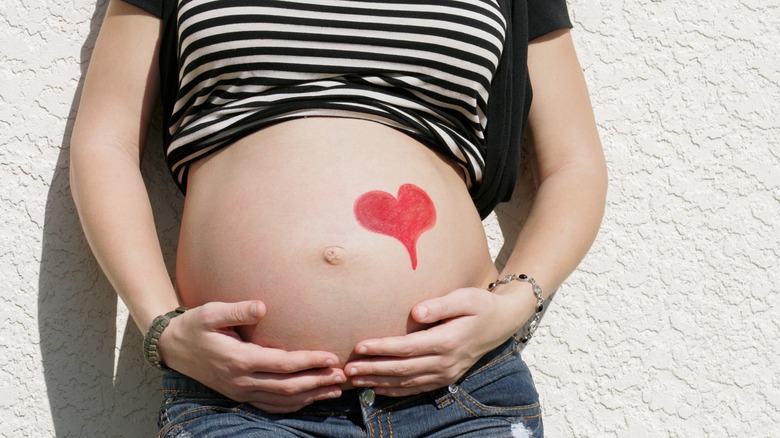How Preeclampsia During Pregnancy Can Impact Your Heart Health In The Long Run
Those who experience preeclampsia during pregnancy are more likely to suffer from heart attack and stroke than those without the disorder, a 2023 study published in the European Journal of Preventive Cardiology revealed on Thursday.
Preeclampsia is a serious condition that develops in 8% of pregnant people across the globe, typically following the 20th week of gestation (per Cleveland Clinic). Those with preeclampsia often experience hypertension and high levels of protein in the urine which points to kidney damage. These complications are often accompanied by symptoms like blurred vision, headaches, abdominal pain, and edema.
High blood pressure – a main marker of preeclampsia — is well-known for its ability to increase the risk of heart attack and stroke. It does this by damaging and blocking the arteries that pump blood to the heart and constricting blood vessels that supply the brain with blood and oxygen (per American Heart Association). While other studies, including a 2017 study published in Circulation: Cardiovascular Quality and Outcomes, have recognized the increased risk of heart attack and stroke in those who've had preeclampsia, this new study reveals how soon after giving birth they are likely to be affected.
Preeclampsia increases the risk of heart attack and stroke in younger people
The study – which looked at data recorded for more than 1.1 million people who've had pregnancies affected by preeclampsia between 1978-2017 — found that those who've had preeclampsia are four times more likely to have a heart attack within just 10 years of giving birth, and three times more likely to suffer a stroke (per HealthDay News). What's more, 2% of people who've had preeclampsia suffered a heart attack or stroke within 20 years, compared to 1.2% of those who never had the disorder.
"A 2% incidence of acute myocardial infarction and ischemic stroke should not be accepted as the cost of a pregnancy complicated by preeclampsia, particularly considering the young age of these women when they fall ill [below 50 years of age]," explained the authors of the study, according to HealthDay News.
Because those between the ages of 30-39 are most likely to experience these post-pregnancy complications (this age group's risk of heart attack and stroke increased fivefold, in comparison to those of the same age group who had healthy pregnancies), the authors of the study recommend screening for people who've had preeclampsia at 35 or older. The Preeclampsia Foundation suggests taking preventative measures like maintaining a healthy weight and cholesterol level, abstaining from smoking, and monitoring blood pressure.


